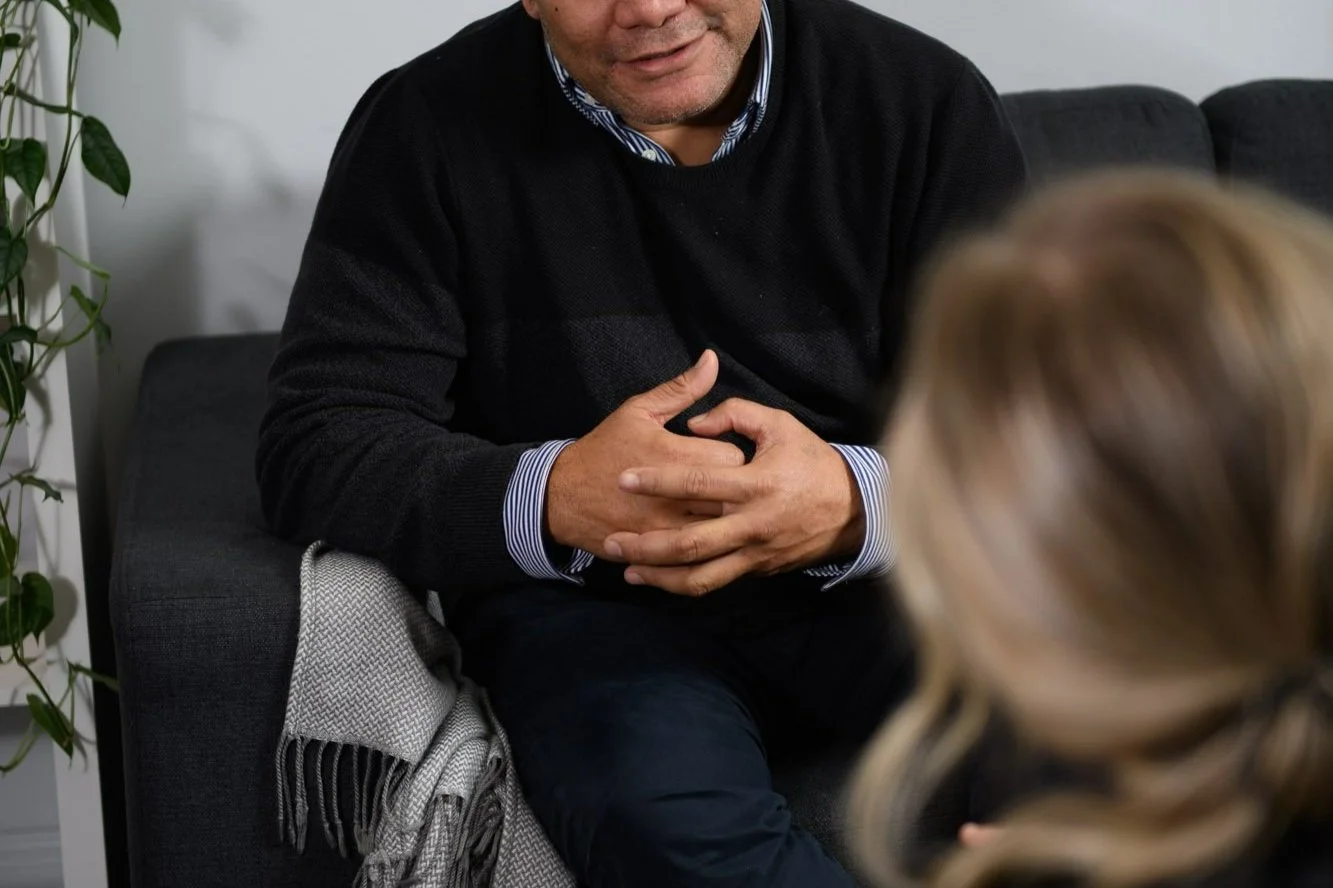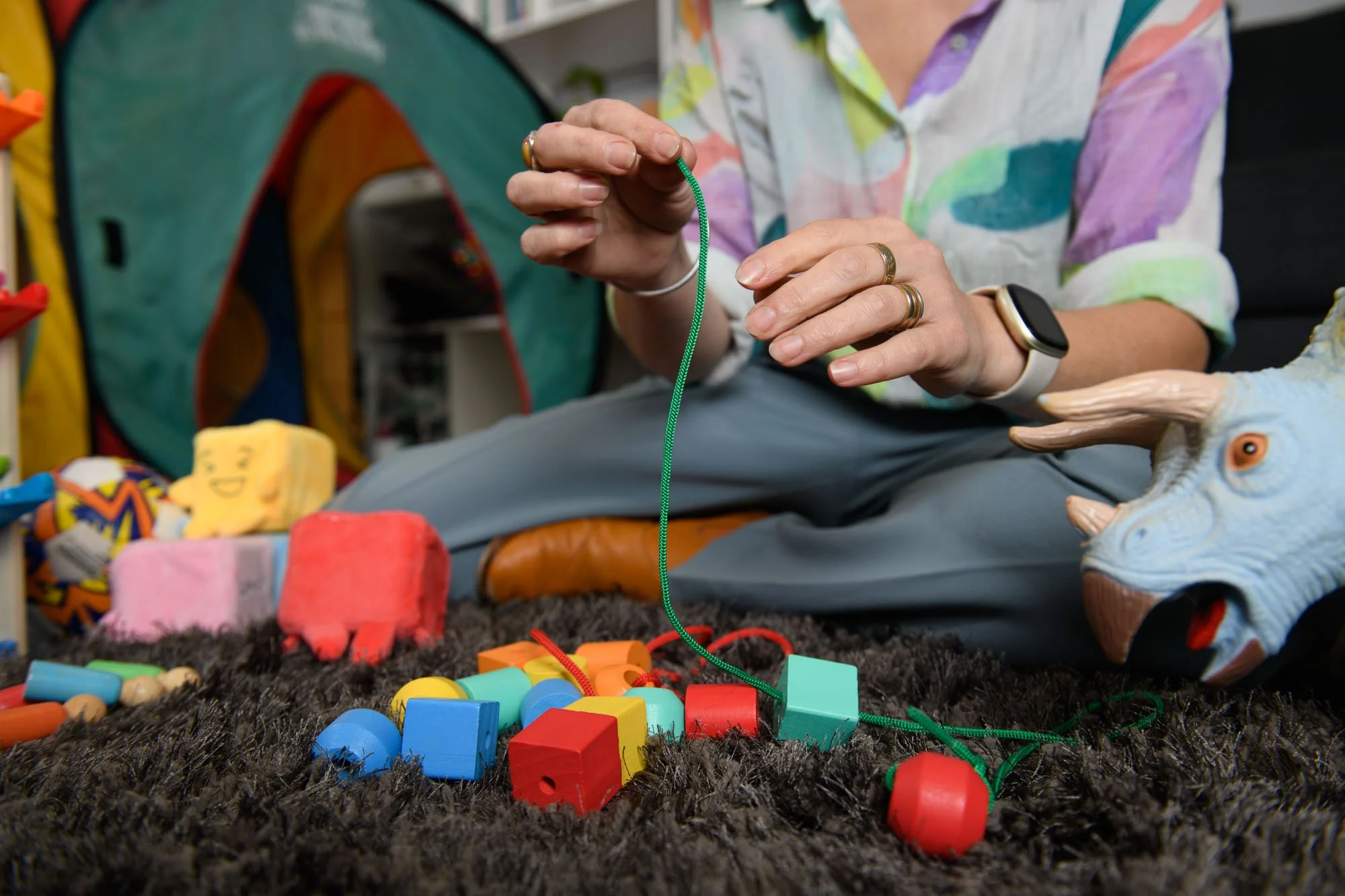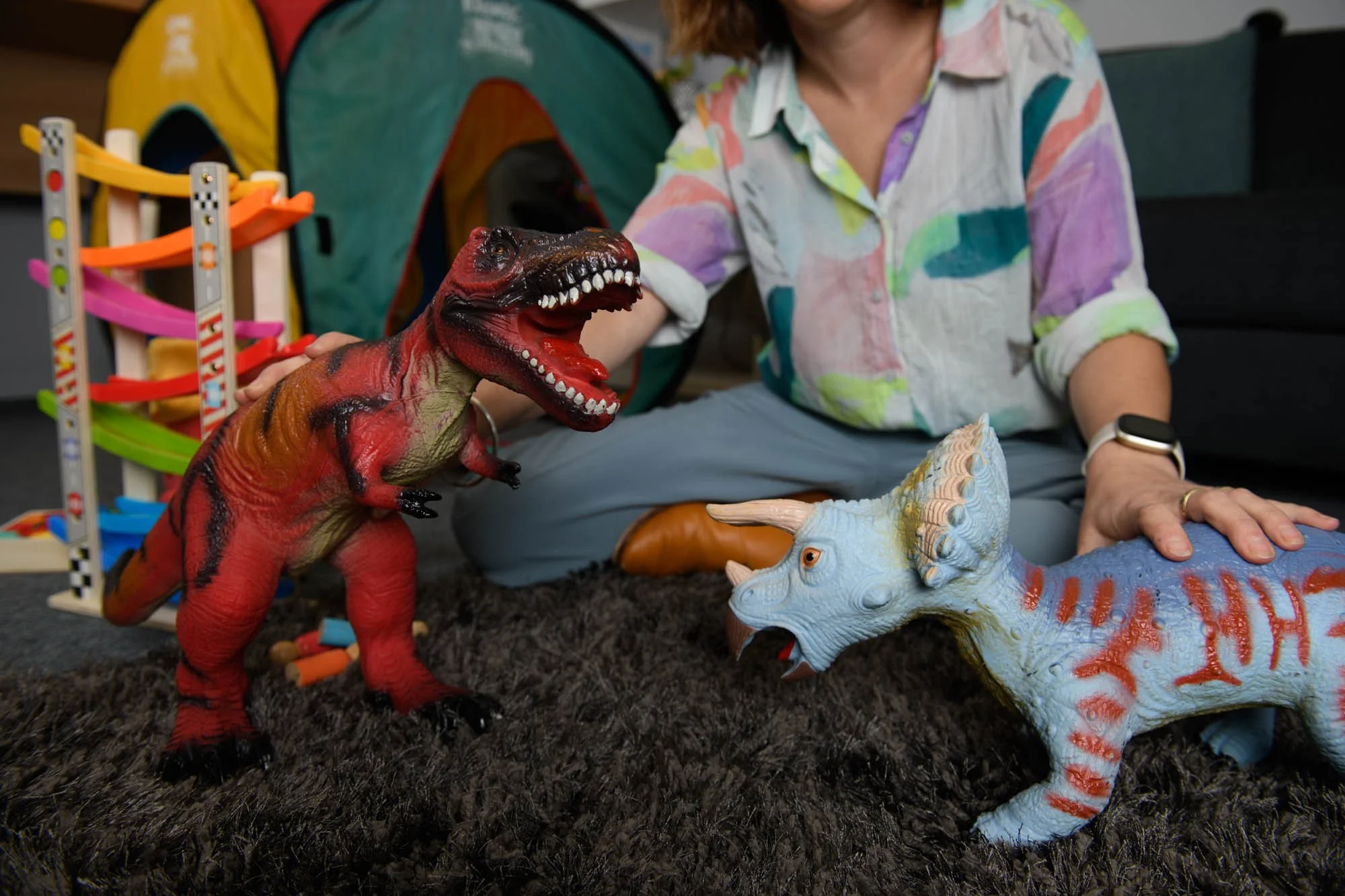Explore the surprising benefits of box play for children's development and happiness, backed by play therapy insights.
3 Tips to Ease Parental Burnout Without Adding More Pressure
Embracing Parenthood: Babe in Arms for Therapy
Anxiety at play
Why we as parents should encourage healthy risk taking
Explore the importance of encouraging healthy risk-taking in children. Learn how positive psychology and development principles support resilience-building experiences and help children develop a growth mindset. Discover why providing opportunities for children to step out of their comfort zone is essential for their future success.
What is Play Therapy?
GROWTH MINDSET 💪
Have you heard of it? Perhaps you have seen it on a poster in your kid's classroom, or seen a blog or motivational post on Facebook or Instagram. It's a fairly big idea in popular psychology at the moment, based on Carol Dweck's book "Mindset".
In a nutshell, a Growth Mindset refers to the idea that our abilities and knowledge can be developed. We can get smarter, do better, and achieve greater through putting in time and effort. This is in contrast to a Stuck Mindset, which refers to the idea that abilities and understandings are relatively fixed; aka, you either have it or you don't.
Why is this so important in parenting? Well, for starters, if we have a growth mindset we have more confidence to try again when we fail at something, we change direction when we realise we were stuck, and we ask for help when we need it. A growth mindset is more than thinking positive thoughts, or even having flexible thoughts. It's also more than just praising and rewarding effort, and it's definitely not enough by itself - even the strongest growth mindset needs to be backed up by taking action.
So what does a growth mindset look like in parents?
👉Thinking about the underlying cause of a parenting challenge, finding a new way, and applying that new way next time
👉Considering parenting difficulties as an opportunity to grow, rather than admitting defeat or concluding that it's just not your cup of tea
👉Adopting a curious attitude toward parenting and embracing opportunities to learn
👉Creating a belief in yourself, in your own parenting skills and abilities, and your capacity to change
👉Rewarding your parenting actions rather than your parenting traits
👉Being ok with being vulnerable and taking feedback, then committing to growth and taking pride in all your hard work and effort.
I challenge you to notice your stuck parenting thoughts and flip them into a growth thought (and then take action on this!).
How do you feel about your parenting from this point onward, once this happens?
Olivia Boer is a Clinical Psychologist and Director of Healthy Mind Centre Launceston, a private allied health practice in Launceston, Tasmania.
Photo by Markus Spiske on Unsplash.
Top 5 calm down strategies for kids, according to a psychologist.
Do you ever struggle with strategies to get your kids to regulate their emotions or behaviour? Try out these ideas, and be sure to let us know how you go.
1. Slow, deep breathing.
Asking a child to do slow breaths can be “boring”. Tell your child to do some “cake breathing” - breathe in like they are smelling a freshly-baked birthday cake, then once they have a lungful of air, tell them to breathe out like they are blowing out birthday candles. Older children can breathe in like they are smelling some other preferred scent (chocolate chip cookies just out the oven, anyone?), and breathe out like they are blowing on a spoonful of hot soup.
2. Movement.
Getting active is one of the best ways of shaking off distress. Younger kids love a spontaneous dance party to a catchy song, and older kids can often be redirected into chucking a ball around or having a jump on the trampoline. Bonus points if parents get involved in this one too!
3. Sensory input.
Whilst we don’t recommend using food as a strategy to manage emotions, tasting something with a strong taste is a great strategy for redirecting attention. Other sensory strategies can include touching something squishy or slimy, or pausing and noticing different sounds you can hear inside and outside over a 30 second period.
4. Kindness and compassion.
Doing something special for someone else is a great way to get out of a negative mood and feel good again. Younger kids love making a card or present for someone, and older children can help prepare a meal or self-care activity for an important person.
5. Time in.
Whilst distraction and redirection are great, nothing beats a cuddle and some reflection about and validation of your feelings, no matter what your age is! Take some time to sit with your child and reflect what emotions you see them feeling, and let them know all feelings are ok and you are right there with them.
Olivia Boer is a Clinical Psychologist and Director of Healthy Mind Centre Launceston, a private allied health practice in Launceston, Tasmania.
The ABCs of behaviour
Aay, bee, cee, dee, eee, eff... sorry, got a little off track there. Lots of ABCs going on both at home and at HMC Launceston these days. Which brings me to todays blog topic: What are the ABCs of behaviour.
A is for Antecedents
Or Anticipating a behaviour, depending on who you talk to. For both options, it means what is happening immediately before a behaviour occurs. It can be something happening in the individual's environment, or it can be an internal event such as an individual's thought or feeling.
B is for behaviour
This one is pretty obvious; it's the actual behaviour that occurs. Remember, behaviours can also be what we want to see occurring, not just a "problem behaviour" that we want to reduce in frequency (how often it happens), intensity (how big/strong it gets), or duration (how long the behaviour goes for).
C is for consequences
Understanding the consequences of a behaviour, or what happens immediately after a behaviour occurs, is almost as important as understanding the behaviour itself. This is because consequences are VERY important in determining whether a behaviour is more or less likely to occur again the next time the individual is in a similar situation.
Why do we care about understanding behaviour?
Our actions can have significant implications for our social, emotional, and educational/occupational functioning. Being able to understand why a particular behaviour is occurring what what can be done to increase or decrease the likelihood of that behaviour occurring can make our lives, and the lives of those around us far more pleasant, happy, and less stressful.
Putting it all together
Think about the following example: Jimmy, aged 4 and his Mum are at the supermarket. Jimmy doesn't want to stay next to the shopping trolley (even for some Coles Mini's at the end) and runs off to the other end of the supermarket isle (the Behaviour). What happened immediately before (Jimmy seeing a big long expanse of space to run in) and immediately after (Jimmy's Mum running after him yelling for him to come back, which is quite exciting for Jimmy whilst she chases him around the supermarket) can make Jimmy more likely to do the same thing next time him and his mum go shopping. By changing the antecedents (for example, Jimmy's mum clearly establishing rules, what will happen if he breaks the rules, and giving him his own shopping list to follow) and the consequences (for example, Jimmy's Mum requiring him to hold her hand throughout the rest of the shopping trip), we can expect that Jimmy's behaviour to be closer to what his mum would like, next time.
One final point...
When we are attempting to shape/change another person's behaviour, it is important to remember that reducing a problem behaviour is not enough. We also need to reinforce the desired behaviour (what we want to see the individual doing next time), so the individual has something to replace their old behaviour with.
If you need some help with behaviour (yours or someone else's), have a chat to one of our clinicians who can help you work it all out.
Olivia Boer is a Clinical Psychologist and Director of Healthy Mind Centre Launceston, a private allied health practice in Launceston, Tasmania.
What causes children's misbehaviour?
It's really easy to blame someone when kids are being naughty, oppositional, or defiant. "They are just so difficult...", "She is doing this for attention!", or "He is just like his father!" are common ideas that come to mind. Especially when your child just won't cooperate, listen, or do what they are asked.
Often, though, we might not understand the child's behaviour enough to accurately pinpoint what causes the behaviour, and why it keeps happening.
As parents, we try the strategies we have been told, the things we saw our friend do, or what our own parents did with us. And yet, the oppositionality continues. We read a parenting website, Google "What do I do when my kid won't behave?", and find ourselves getting frustrated and yelling more than we would like. Then they talk back to us and run off.
There are a few key steps to understanding children's behaviour that we will be looking at over the coming weeks. The first is an idea discussed by Dr Russell Barkley, one of the pioneers in ADHD and Oppositional Defiant Disorder research, in his behavioural parent training work. Dr Barkley notes there are four main causes of, or contributors to children's misbehaviour.
1. Child Factors
These include a wide range of child-specific problems including temperament (including inherited predispositions toward irritability, low frustration tolerance, and anger), impulsivity, attentional problems, learning problems, intellectual and developmental difficulties, sensory sensitivities, activity levels, emotional regulation ability, physical characteristics (including motor coordination, stamina, and appearance), etc. It is not difficult to see how these child-specific elements can lead to conflict with parents or caregivers. It is also easy to see how child misbehaviour can be solely attributed to these characteristics. However, according to Dr Barkley, another key element that contributes to child misbehaviour is parent factors.
2. Parent Factors
Parent factors are not that different to child factors, but they definitely impact how parents interact with their children and manage their kids' behaviour problems. Parent factors can include things like (you guessed it!): temperament, impulsivity, learning and intellectual difficulties, emotional regulation ability, physical characteristics, etc, etc. Pretty much all the same things that kids bring to the equation. Because (and it's really important to remember this), parent-child interactions are bi-directional. They go two ways; parent to child, and child to parent. Unless one of you is a robot of course, and in that case, you are reading the wrong blog.
3. Family Stress Events
There are a wide range of stressful events or situations that families can experience, that can also contribute to children's misbehaviour. These can include significant or catostrophic events like the death of a family member, exposure to family violence, family separation or restructuring, loss of stable housing, or loss of financial security. Less severe events also are worth a mention here, including financial strain, marital discord, tense relationships with relatives, etc.
Now, at this point a lot of families tell me they can't do anything about these factors. And they are largely right. We are stuck with genetic predispositions, can't do a lot about our in-laws, and that physical characteristic is largely permanent. There may be some things you can do to modify some of these factors though. And, if you can, the time is now. Go and seek some financial counselling, set some limits with your extended family members, and get a health check-up with your GP.
This brings me to the final factor, the one you really CAN do something about.
4. Situational Consequences.
Now, I'm not going to go into detail here as this area definitely deserves it's own post. But for now, be assured that understanding how that happens around the same time as the child's behaviour can a) help you to better understand why the problem behaviour keeps happening, and b) help you to understand what needs to happen to change it.
Keep a lookout for our next post to learn more, and leave a comment if there are any topics you would like us to explain further.
Olivia Boer is a Clinical Psychologist and Director of Healthy Mind Centre Launceston, a private allied health practice in Launceston, Tasmania.












